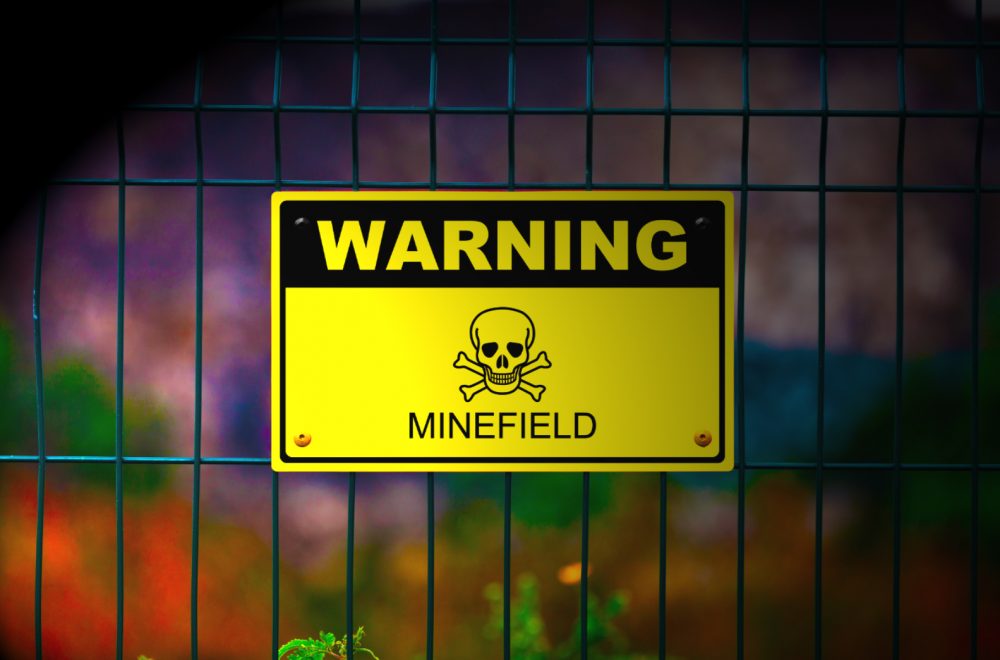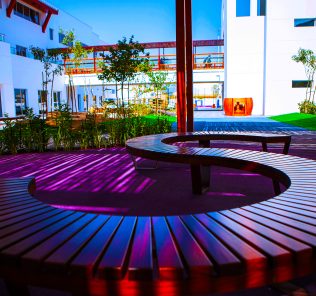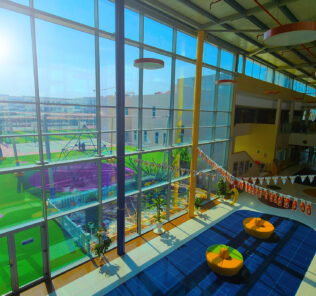Choosing A’Levels and BTECs at Sixth Form. Traversing the Minefield. The Guide 2020.
Background: Choosing A’Levels and BTECs at Sixth Form. Traversing the Minefield. The Guide 2020.
Knowing how to prepare children for the long educational road ahead can be daunting for children and parents alike. How young is too young to be thinking about preparing them for university, and which choice of subjects will help or hinder them on the pathway to their future careers?
We asked experts at schools in Dubai, to talk us through what they see as the factors to be taken into account in choosing the “right” subjects to study at A’ Level or BTEC and those that will best prepare them to be accepted to study at the university or in the industry of their choice.
Which Subjects are Best?
Amy Cooper, Assistant Principal at GEMS Wellington Academy, Silicon Oasis, oversees post-16 education. She told us:
“[..] balance is key. While there are certain ‘facilitating’ subjects which the likes of the Russell Group institutions look for, breadth is as important.”
There are 24 known ‘facilitating subjects’, including Mathematics, Physics and English Literature. However, Mrs Cooper says most universities favour similar areas, including modern foreign languages, Maths, English (Literature or Language), any of the Sciences and, lastly, any subject from the Humanities group, especially History.
Mrs Cooper explains:
“These subjects show universities that the student has a range of skills that prepares them for university life. For the Russell Group of universities, the same applies, and they normally prefer students coming with a Science, Maths, English and History background.”
The facilitating subjects normally lend themselves to concept and inquiry-based thinking, and tend to cross into multiple disciplines, or promote the transferable skills and competences needed for further education, such as communication, critical thinking and collaboration.
To progress to A’ Level study, students at GEMS Wellington Academy need a minimum of five GCSEs at grade 4-9 or above, including English Language. If students do not gain a grade 4 or higher in GCSE Mathematics, they must then study GCSE Mathematics alongside their respective A Levels.
Mrs Cooper clarified:
“Requirements for each A’ Level, on average, tend to be a Grade 6 or 7 for these facilitating subjects and a Grade 5 or 6 for the non-facilitating subjects such as Photography and Psychology.”
There are some definite subjects to be avoided, Mrs Cooper advises, and these are those subjects not favoured by universities. These include Citizenship Studies, Critical Thinking and General Studies, none of which are accepted by universities as one of the three core A Levels generally required by universities to proceed to degree level study.
What these subjects can do, however, is “add some weight when candidates have narrowly missed out on sealing the required points.” There is a “fine line to tread” when advising students what to study. While subjects a student loves will often result in more dedication and in turn, better grades, Mrs Copper advises that it is vital to take into account how universities perceive subjects as a pathway to entry.
Mrs Cooper also identified a further tip for students on choosing A’ Level and BTEC subjects:
“As well as these exclusions, universities that are more prestigious seem to take into account the perceived rigour of an A Level course when deciding whether to offer conditional or unconditional offers. Even though the weight of the A Level is the same, there is still a list of subjects that do not hold as much credibility, be it due to tradition, respect or rigour.”
Examples of these less desirable subjects includes Accounting, Art and Design, Business Studies, Communication and Culture, and Creative Writing.
In a final warning, Mrs Cooper advised us, counter-intuitively, that the planned course of study at university does not mean the same subjects should be studied at A’ Level:
“Universities are not fans of A Level subjects like Law, Criminology and Accounting, as they feel the course content is either repetitious or not thorough enough at A Level, giving students a false sense of knowledge and depth of understanding.”
When advising students, GEMS Education summarises its advice to students when choosing A’ Level and BTEC subjects to study as:
“…keeping choices as broad as possible, to include the facilitating subjects wherever possible, and to study the subjects that students are passionate about – this enabling the student to maintain a sustained interest and enthusiasm for what can often be a tough and long path.”
Choosing subjects that you are interested in and good at…
Mitchell Burke, Sixth Form Transition Manager at Dubai English Speaking College (DESC), places passion and interest in a subject as top of the list of the most important factors to take into account when choosing subjects to study at A’ Level or BTEC:
“There is demonstrable evidence to point to the fact that love of a subject is likely to lead to success. My advice to students when selecting particular A level subjects would be to consider, firstly, their interest and enthusiasm for the subject; secondly, the potential to help access university courses; and, thirdly, to think about their career aspirations.”
Laura Murphy, Careers Advisor at The English College in Dubai, also agrees, and says:
“Being passionate about your subject is extremely important. [..] Students will study the subject for two years and they are more likely to succeed if they enjoy it as they are more likely to put the hours in.”
Mrs Murphy argues too that:
“Subjects that students have previously shown aptitude in should also be high on the list of considerations.”
Which A’ Level or BTEC subjects are most popular?
GEMS advised us that, across their schools as a whole, the Sciences and Mathematics are among the most popular subjects chosen, with:
“… Chemistry by far the most sought-after of the Sciences. With many of our students aspiring to study Science or Medicine at further education, they pick their options based on the requirements universities prescribe.”
Amy Cooper, Assistant Principal, GEMS Wellington Academy, Silicon Oasis
Mr Burke sees a slightly different pattern at Dubai English Speaking College (DESC), however. Its most popular subjects are Psychology, History and Biology:
“Each of these subjects are academically challenging, offer diverse areas to study and have real world implications.”
Mitchell Burke, Sixth Form Transition Manager, Dubai English Speaking College
Getting the grades…
At Dubai English Speaking College, its requirements for students to progress to A’ Levels depends on the subjects a student wishes to study. A level 7 in Mathematics at GCSE is required to study any A’ level in the Sciences, though its team will “always discuss and advise each student according to their plans and look at the bigger picture and the child individually.”
While moving students is not always ideal, Mr Burke told us that if a student has a particular path that they wish to follow, or experiences that they would like to fulfil, then parents and students are very fortunate in Dubai because there is such a vast array of both subject and school choices available to parents to move school for Sixth Form in Dubai.
“We are fortunate at Dubai English Speaking School because we have always focused on providing the broadest range of subjects for students to choose from so that we can meet the individual needs of students. At DESC, we offer a large number of pathways in our Sixth Form, including traditional academic GCE Advanced levels, a more vocational BTEC route, but also a combination of A level and BTECs so we can give every child, regardless of their ambitions or abilities, a pathway that is right for them.”
Mitchell Burke, Sixth Form Transition Manager, Dubai English Speaking College
Some subjects will naturally be more competitive than others, and at the English College, higher entry requirements are set for Mathematics and Science that can raise the minimum of six B grades generally at GCSE to progress to A’ Level study.
Ms Murphy stresses that at The English College student wellbeing is critical to success, above and beyond subject choices.
“A subject is only one piece of the puzzle of a child’s academic profile. At the English College, it is the wellbeing of our students that is, instead, our number one priority. Students at The English College will achieve highly because they are in a school where they feel safe, secure, inspired and happy.
In many cases, for universities, specific courses are far less the issue than students meeting the grades in whatever subjects they have chosen to study. Universities are, above all, looking for each student’s ability to excel in studying subjects they are passionate about. They want to see a love of learning.
Forcing children to study subjects they are not interested in is very unlikely to see students achieving as highly as if they are enabled and encouraged to study those subjects that they are most inspired by.
Children feeling that they are in a school that supports their ambitions and their subject choices, one that enables them to study in a kind, caring, nurturing and happy school environment…. that is the real answer to the question of what are the right choices for students and how they will be most successful.”
Laura Murphy, Careers Advisor, The English College Dubai
Bottom line? Choosing subjects at A Level and BTEC. Avoiding the Minefield. Last Words from the Editor.
From personal experience, although at a later point in my education, I learned first hand the impact of pushing children to study subjects that they have little interest in. In my case I was pushed to study Law at a Russell Group university on the basis that it was “a career”, one of “the professions” – and that this and a top university would “ensure that you are financially secure all your life.” What I really wanted to study was Philosophy and Politics – and it did not matter where if I was surrounded by kindred spirits.
There is an equal pressure from many parents, understandably, for children to study Medicine, or Accountancy or any subjects that will guarantee security. Even today, too, many parents are uncomfortable if their children are interested in subjects that do not quite fit with their own, or society’s, expectations. It is only recently that the world has woken up to the fact that women are equally (and often in my experience better) qualified to study Business, the Sciences and Engineering…
In my case confused decisions at 16 and 18 meant I spent three years studying a subject I had no interest in, with people I had nothing in common with, mourning the life I could have had from the fourteenth floor of a hellish, isolated tower block in London.
Two degrees later I finally followed my heart and earned a rare scholarship to study Political Philosophy at doctoral level under one of the world’s most extraordinary academics.
Today in our schools things have, fortunately, changed and our children are getting much, much better advice – and a much broader range of subjects to choose from. At my boarding school growing up I do not actually remember getting any advice at all.
Not all children even know reliably what subjects they want to study at 18, let alone 16. At 16, looking back, I could have studied either the Sciences or the Arts at A’ Level. My decision was made, quite randomly, on the basis of the teachers that I liked best. That decision, at just 16 years old, closed down my later career choices. I had effectively written myself out of the opportunity of being a pilot – something I had dreamt of being if someone had only taken the time to question me about my ambitions and “dreams.”
Students also now have the choice of studying A’ Levels or BTEC at traditional British schools, or moving to study for the International Baccalaureate Diploma or International Baccalaureate Career-related programme at IB schools.
If schools do not offer the subject choices at 16 that meet the needs of a student, it is now easier than ever to move schools and choose a Sixth Form that does fit. Good schools will not stand in the way of a child moving to join a school that offers a better fit – and all good Sixth Forms offer a warm welcome to joining students, often with financial incentives.
The point? The best advice is to stop, breathe, feel and think.
If you are good at the Arts and Sciences choose a mixture of both at A’ Level. Keep your options open. Follow what is right for you. If you excel at certain subjects, if they fire your imagination, that really does matter. And do speak with schools. You should expect time set aside, one to one, to talk through your options. Schools should listen to you, first and foremost, and not be thinking about how to pigeon hole you into the limitations of their subject offerings or timetabling.
The Russell Group came under fire when they originally released information on what their universities were looking for from students applying to their universities. Many accused them of closing down options for children. They have now addressed this. Their new web site is, in our view, outstanding as the basis for giving students and parents some practical pointers on where to begin in working through the choices that are right for students at 16. It can be found here.
Sometimes too, many children develop later. Exams do not always reflect the ability or potential of a child. A good school will know their students and work through the options. If that means bending the rules for an individual child they will. We know too of one school that created subject options and a bespoke programme of study for one child at Sixth Form to ensure that he graduated with the tools needed to meet his ambitions.
Stephen Fry is well known for questioning the pressure placed on children at 16:
“I think, like a lot of things in the world, it matters at the time but it never matters in the end, and that is true of so many things in our lives – they matter desperately at the time but they never really matter.
I can understand why people get upset and they think ‘I’ve failed’ but you don’t fail.
I did miserably in my GCSEs – they were called O-levels in my day – but managed to blag my way to get some A-levels and then slowly I got the learning bug, but it doesn’t matter in the end.
What matters is what kind of person you are, curiosity, staying alert and interested, there is always another chance …”
A view on why GCSE and (A’ Levels) examinations, not subjects, may well end up being abolished can be found here. Until this time comes, here are our top 10 tips to take away from this article:
(1) Restricting the types of subjects you study at Sixth Form to only Arts, or only Science, subjects, will restrict your choices later. It does matter.
(2) Avoid studying for any subject you are told you should, or think you should, if you are not remotely interested in it, or good at it. Do not be rushed or pressurised into decisions that are not right for you.
(3) If you do not achieve the grades required to study a subject that is important to you at A’ Level or BTEC, and there are good reasons why you have not, argue the case with the school on why you should be able to study that subject. Persuade them. Do not take no for an answer. Good schools will listen and will find a solution.
(4) Do not be afraid of moving school. If you want with a passion to study Psychology and your school does not provide it, other schools will welcome you with open arms who do offer it.
(5) If like many students at 16 you are uncertain on what to study, or the career you would like to follow, or whether you want to eventually go to university or leave school for industry, do not panic. You are not alone. Choose subjects you are interested in, with teachers that inspire you. If you are lucky enough to be good at the Arts and Sciences choose a mixture of subjects drawn from both. If you are lucky enough to be academic and practical, choose a mixture of A’ Levels and BTEC.
(6) Think of potential careers and look at “Informed Choices”, here, to get some ideas. Use what you learn here as a basis to speak with your careers advisers in school.
(7) Be honest with your school career adviser(s). They are professionals and have chosen this career because they wanted to become experts in helping students exactly like you. A good mentor or career adviser in school is every bit as important as a good English or Mathematics teacher. They deserve your respect and time. Good schools will have invested heavily in this area.
(8) Do not look around you for answers, look within. Because your friends choose one journey, or because your parents chose a certain path and you admire them, does not mean those journeys are right for you.
(9) You will leave school. There is a big wide world out there. It may seem everything now. But there is more….. When making decisions on what to study, think bigger than the school grounds and classrooms.
(10) Nothing is impossible.
©SchoolsCompared.com 2020. All rights reserved.
Notes:
Our review of GEMS Wellington Academy, Dubai Silicon Oasis can be found here. The school web site can be found here.
Our review of Dubai English Speaking College can be found here. The school web site can be found here.
Our review of The English College Dubai can be found here. The school web site can be found here.















































































Leave a Response